Galleries
See Images From a New David Hammons Show That Will Make You Second Guess What You Think You’re Seeing
The show is one of three concurrent presentations celebrating the artist.
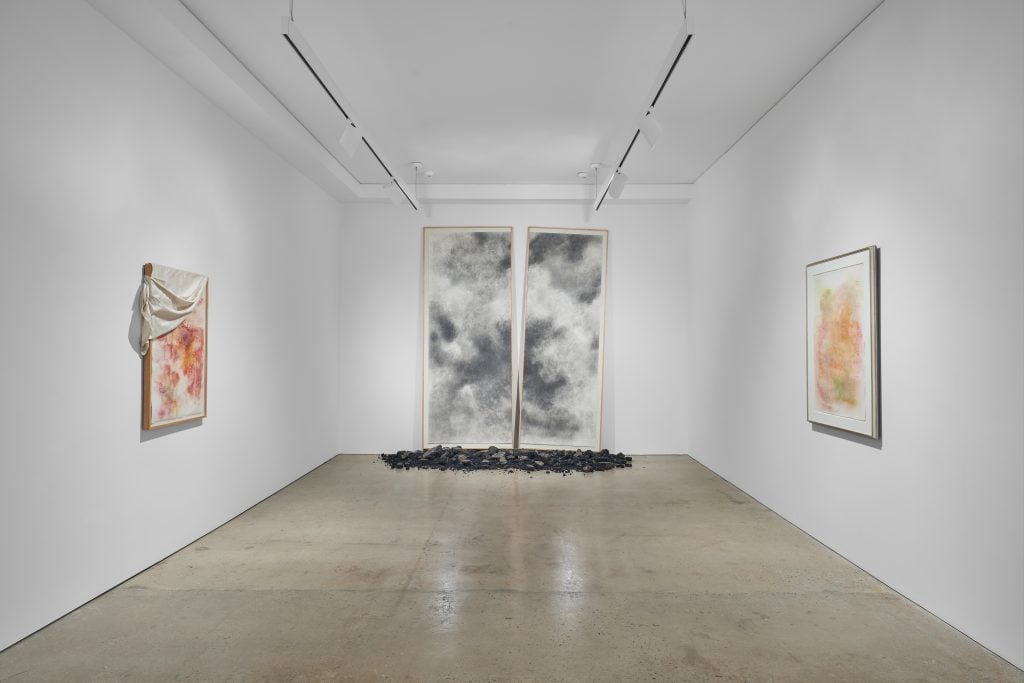
The show is one of three concurrent presentations celebrating the artist.

Caroline Goldstein

What the gallery says: “Invoking the material concerns of Arte Povera and the conceptual investigations of Marcel Duchamp, David Hammons appropriates the ephemera of daily life to explore the cultural and societal subtexts inherent to materials, images, objects, and language. A consistent thread throughout his multifaceted oeuvre, which spans over 50 years, is an investigation of racial stereotypes, prejudices, and identities in the United States. As such, the ‘Basketball’ (1995–2012) and ‘Kool-Aid’ (2003–07) works explore constructions of race and the clichéd associations bound to black American experience and culture.”
Why it’s worth a look: David Hammons is having a moment. The inimitable and enigmatic artist, a recluse by the standards of today’s demand that everyone be perfectly self-branded, is the subject of three concurrent displays of work, with his seminal “Body Prints” (among other works) on view at the Drawing Center in Tribeca; his long-awaited homage to Gordon Matta-Clark, Day’s End, practically done on the Hudson River; and another exhibition at Nahmad Contemporary, where hs is showing two rarely exhibited series.
Hammons has used his own body as a tool to create works, leaving a mark that is both highly personal and which points to the broader subject of Black bodies being commodified, manipulated, and deified. For his basketball drawings, Hammons bounced balls coated in charcoal onto pristine white paper, making subtle gradations. The element of chance inherent in bouncing a ball is a nod to the one-in-a-million chance afforded to the exceptional athletes who escape dire circumstances and rise to the ranks of professional play.
The Kool-Aid works, meanwhile, are made by applying the colored powder to paper in watercolor-like swirls and bursts. To add an element of concealment, silk curtains are draped over the works, partially covering them, refusing the viewer complete understanding or access.
What it looks like:
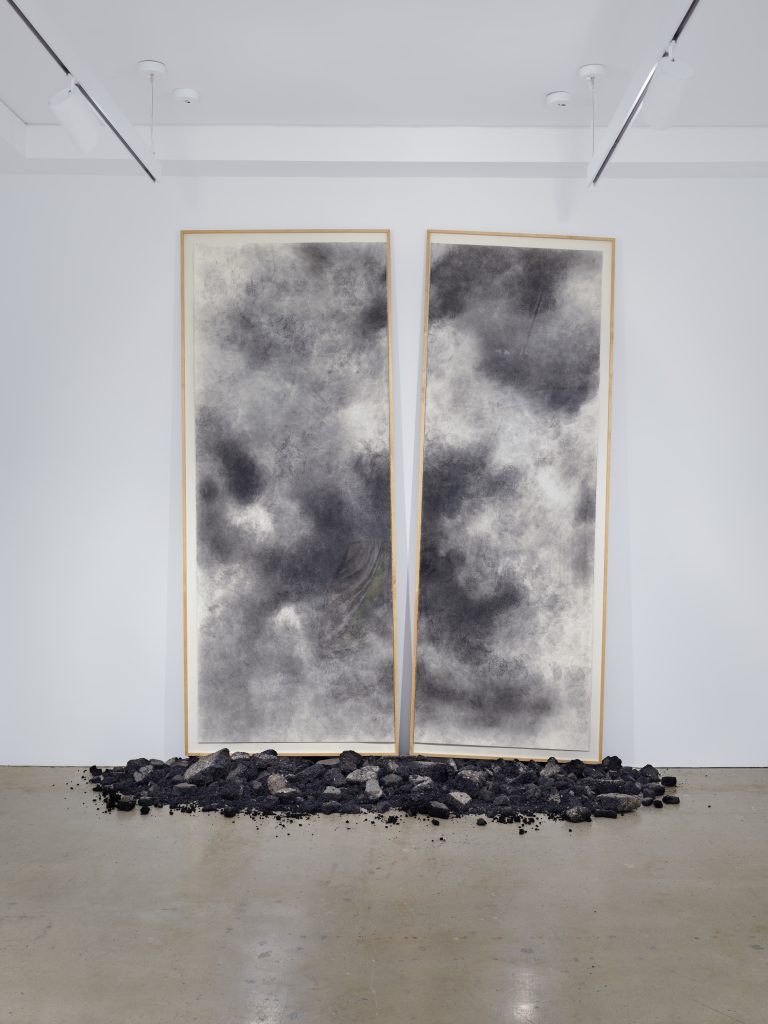
David Hammons, Untitled (Basketball Drawing) (2006-7). ©️ David Hammons / Courtesy Nahmad Contemporary.
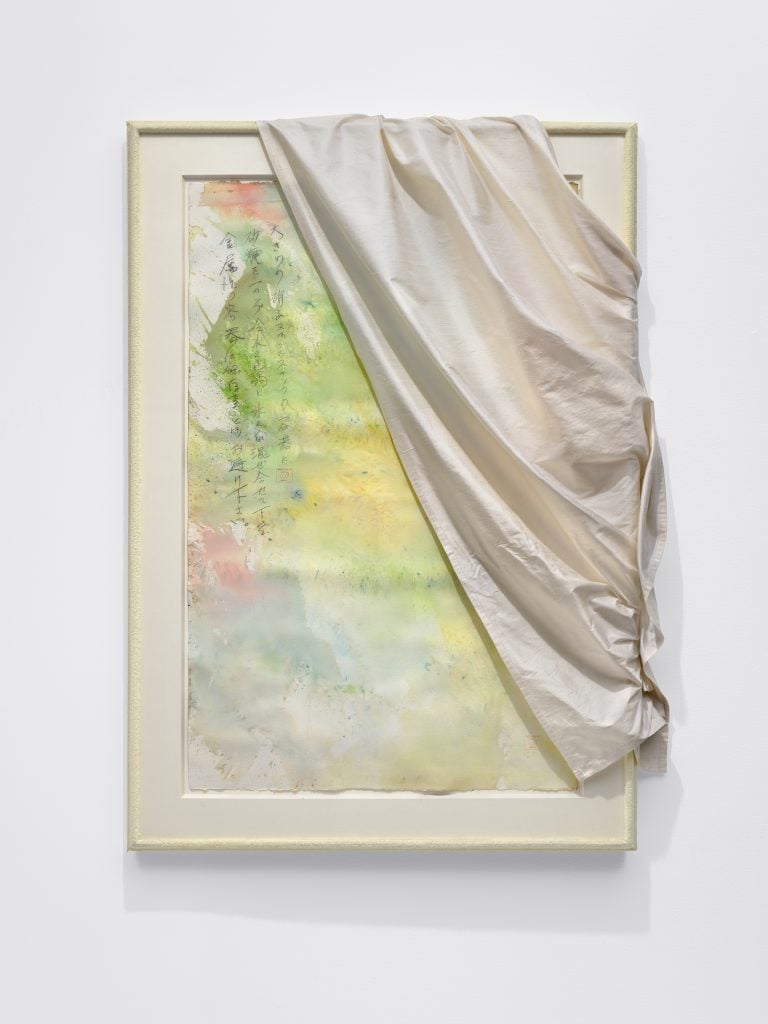
David Hammons, Untitled (Kool-Aid) (2004). ©️ David Hammons / Courtesy Nahmad Contemporary.
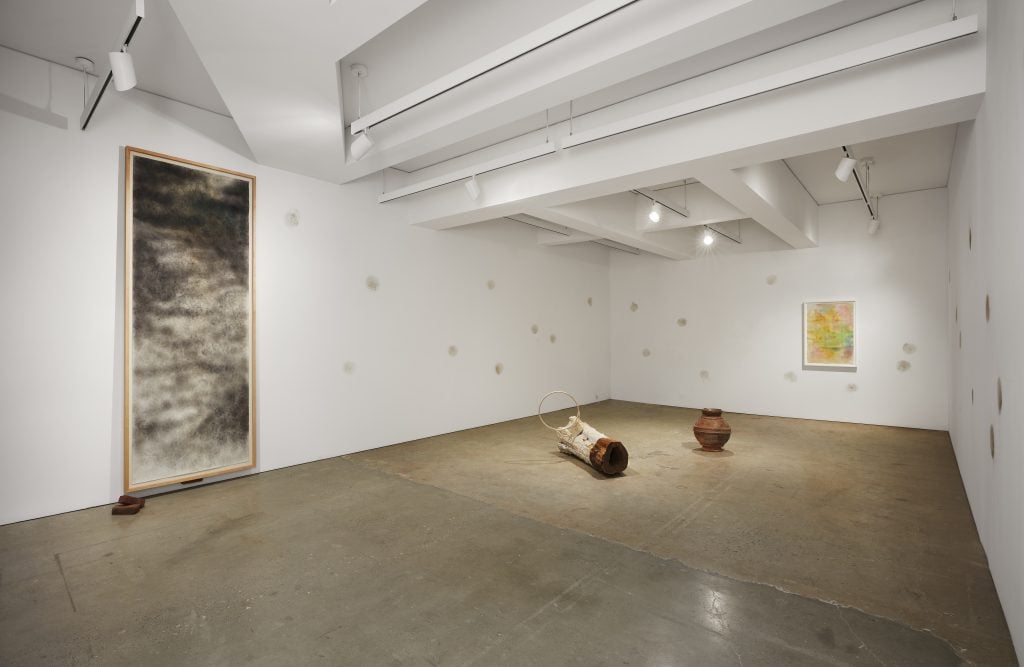
Installation view, “David Hammons: Basketball & Kool-Aid” at Nahmad Contemporary. Photo: Photography by Tom Powel Imaging. © David Hammons.
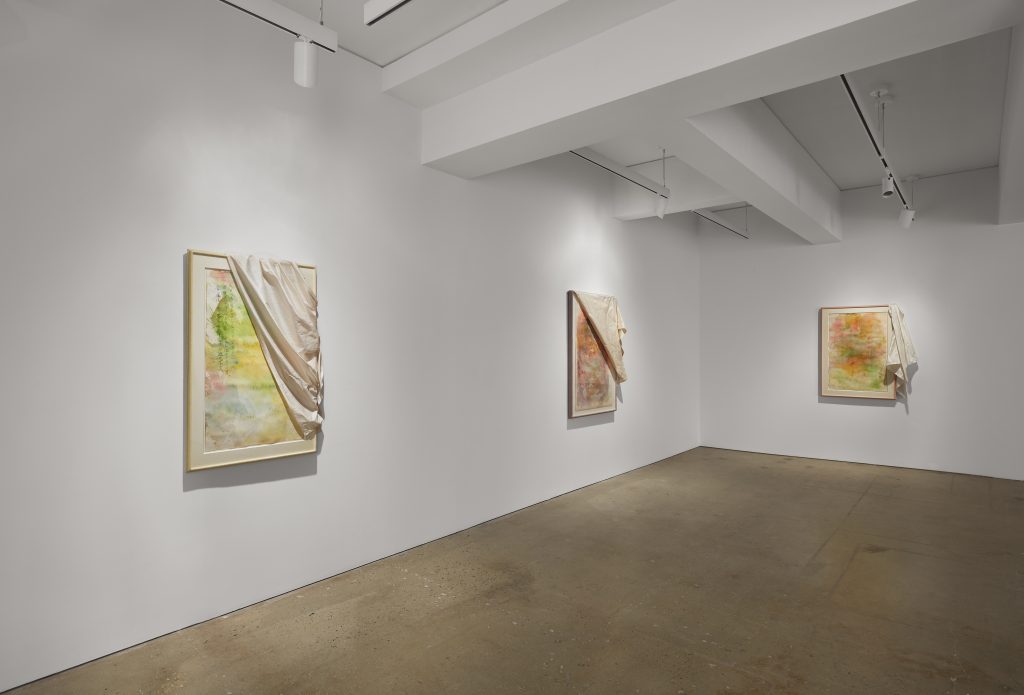
Installation view, “David Hammons: Basketball & Kool-Aid” at Nahmad Contemporary. Photo: Photography by Tom Powel Imaging. © David Hammons.
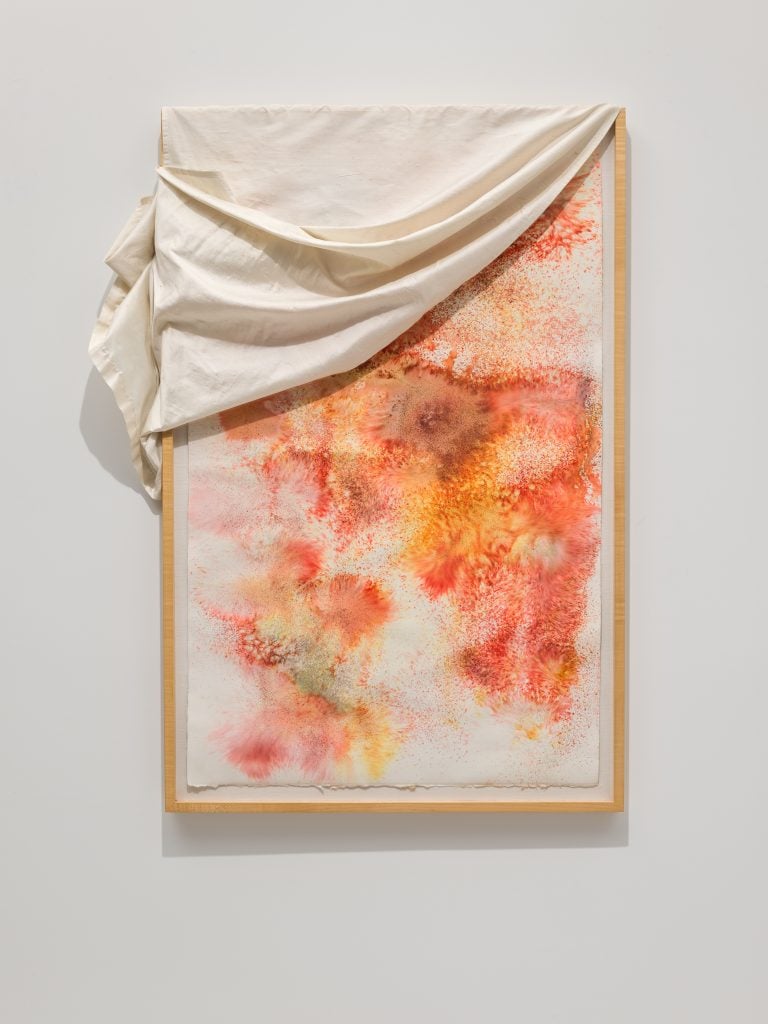
David Hammons, Untitled (Kool-Aid) (2003). ©️ David Hammons / Courtesy Nahmad Contemporary.
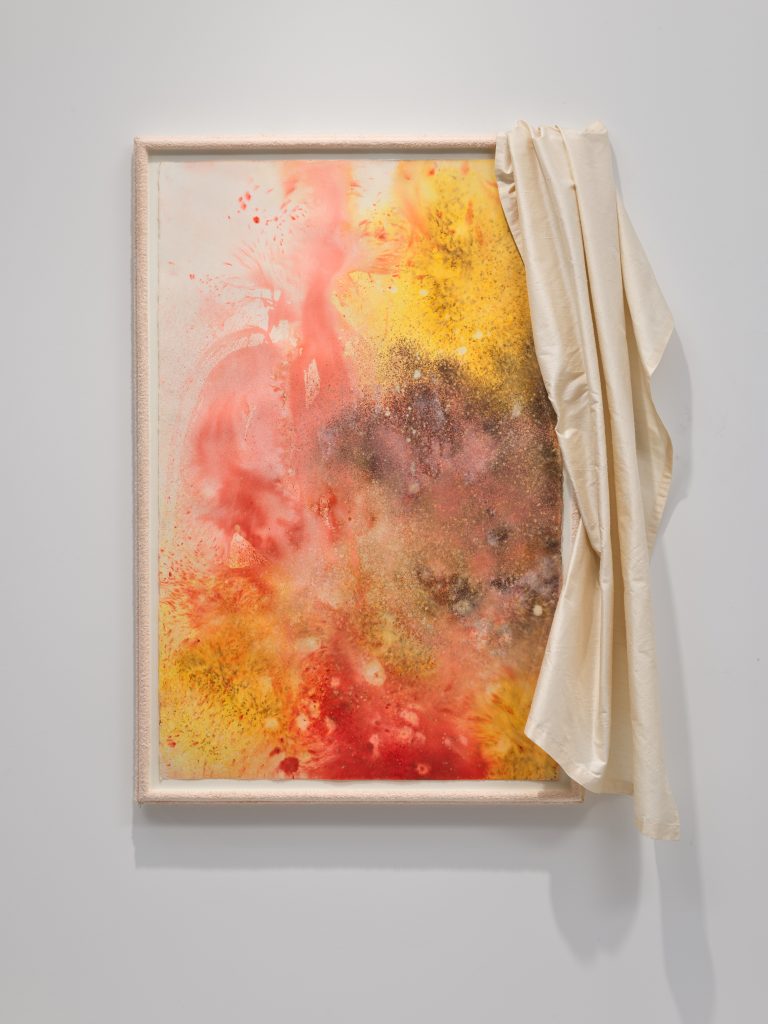
David Hammons, Untitled (Kool-Aid) (2006). ©️ David Hammons / Courtesy Nahmad Contemporary.

Installation view, “David Hammons: Basketball & Kool-Aid” at Nahmad Contemporary. Photo: Photography by Tom Powel Imaging. © David Hammons.
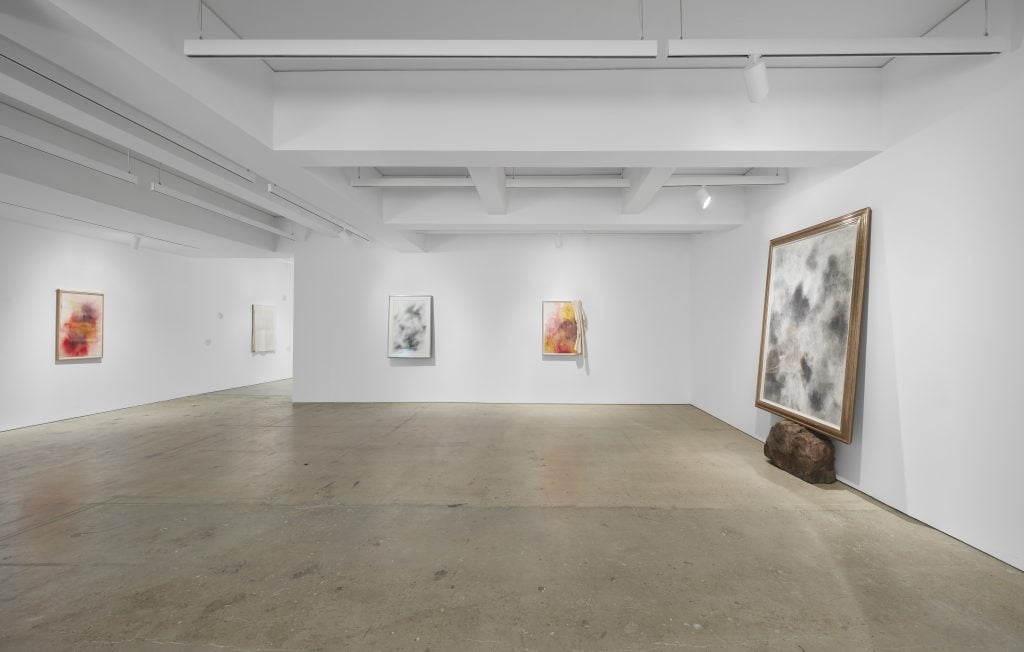
Installation view, “David Hammons: Basketball & Kool-Aid” at Nahmad Contemporary. Photo: Photography by Tom Powel Imaging. © David Hammons.
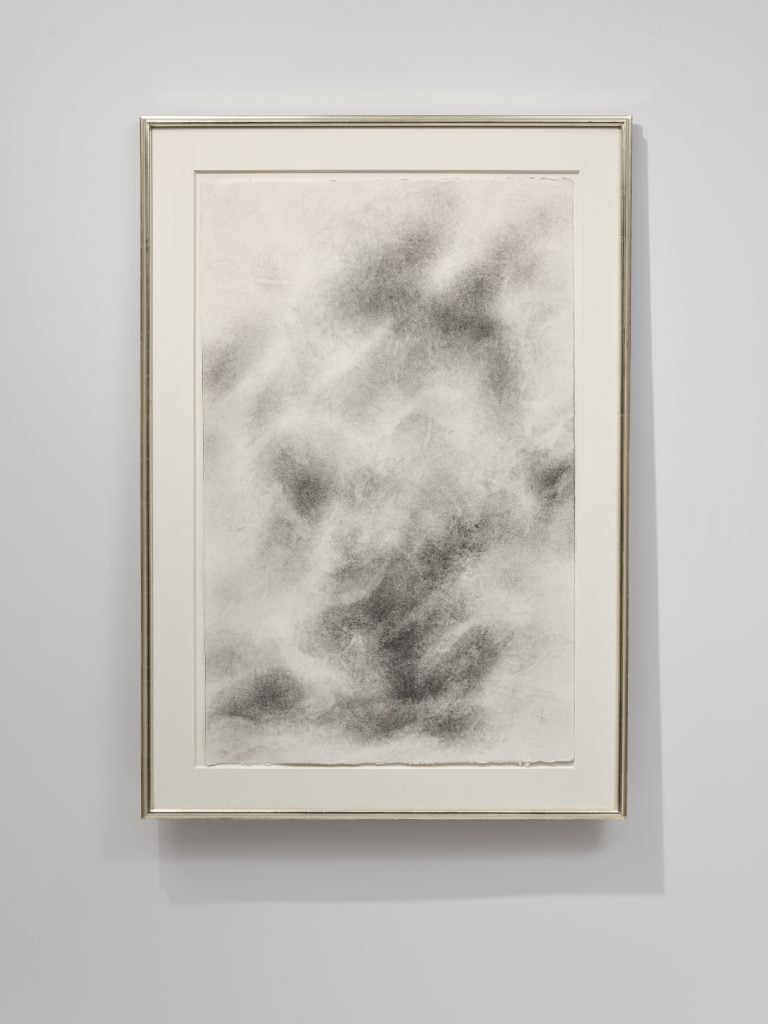
David Hammons, Time Out (Basketball Drawing) (2004/10). ©️ David Hammons / Courtesy Nahmad Contemporary.